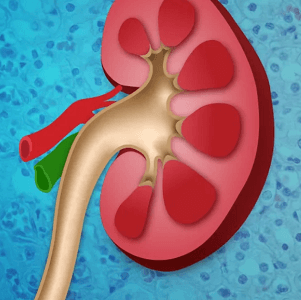A significant study by researchers from the National Institutes of Health (NIH) and their collaborators has uncovered an important genetic risk factor for kidney disease in people from Ghana and Nigeria. The research, published in the New England Journal of Medicine, reveals that nearly one-third of individuals in these West African nations carry variants of the APOL1 gene that increase their risk of developing chronic kidney disease.
The study, conducted by the Human Heredity and Health in Africa (H3Africa) Kidney Disease Research Network, involved over 8,000 participants from Ghana and Nigeria. It found that having just one risk variant in the APOL1 gene can increase the likelihood of developing kidney disease by 18%, while two risk variants raise the risk by 25%.
Dr. Adebowale A. Adeyemo, deputy director and chief scientific officer of the Center for Research on Genomics and Global Health at NHGRI, emphasized the importance of this research in understanding kidney disease risk across diverse populations. “By comparing this study to previous studies involving the African American population, we can gain a deeper understanding of the effects of these high-risk APOL1 variants,” he stated.
The findings have significant implications for African Americans, many of whom have genetic ancestry primarily derived from West Africa. However, the study also highlights the importance of considering environmental factors, as West Africans live in vastly different environments than African Americans.
Dr. Paul Kimmel, program director at the National Institute of Diabetes and Digestive and Kidney Diseases (NIDDK), noted that these results could provide insight into improving the health of patients at risk for and with kidney disease. The study underscores the critical need for diverse population studies in genomic research to ensure that genomic medicine can equitably benefit people worldwide.
As chronic kidney disease affects an estimated 37 million Americans, with higher prevalence among African American, Hispanic American, and Native American populations, this research offers valuable insights into potential early interventions and personalized healthcare strategies for those at risk.
See “Genomic variants that increase risk of kidney disease are found in nearly one-third of West Africans” (October 28, 2024)



